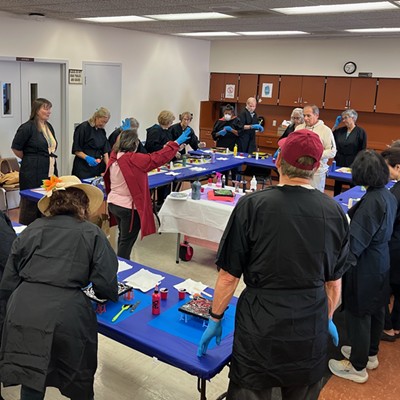The Santa Barbara County Board of Supervisors decided to revisit its “death penalty tax” on cannabis businesses to give operators more time to file their taxes and the treasurer-tax collector more time to process the filings.
The supervisors unanimously voted on June 27 to require cannabis operators to file their quarterly taxes within a 30-day grace period or lose their license to operate in Santa Barbara County starting in August. On July 11, after receiving feedback from the treasurer-tax collector and public comment, supervisors voted 4-1, with 2nd District Supervisor Laura Capps dissenting, to continue the item in order for staff to change the ordinance to a 60-day collection period.
During public comment, local operators highlighted the challenges they would face if the ordinance were to take effect.
“With this new ordinance, you will see unintended consequences of the small farms going out of business,” operator Emily Curry told the supervisors. “I understand we need to get rid of the bad actors, but this is only going to hurt the good apples in the county.”
Curry added that she hoped that supervisors would consider how the policy could be detrimental to local business owners who 1may have spent thousands of dollars to set up operations only to lose their license if they are late paying their taxes.

Jillian Collins, a cannabis operator in Buellton, added that the industry moves slowly and operators don’t have a lot of cash flow due to banking, licensing fees, and processing fees. Timing, especially for taxes, remains crucial for operators to stay in business.
“I just feel like it’s challenging enough in this industry with compliance in state regulations and maintaining profitability. We’re trying to be one of those good farms that has very slim margins and a very small team,” Collins said.
County Treasurer-Tax Collector Harry Hagan added that the 30-day window might bring some challenges to get all of the taxes received and accredited within those 30 days, and added that extra days would be helpful to give his department some leniency.
“The 30 days is really tight for cannabis operators—that’s my personal opinion. We initially, for some time, [talked] about stretching that to 60 days. We were going to talk to county counsel about it, but we don’t want to do anything that will circumvent the wishes of the board,” Hagan said.
Fifth District Supervisor Steve Lavagnino said that this 60-day window would ensure that cultivators pay in full and on time while considering how the 30-day window would also impact the treasurer-tax collector’s office.
“I think that still gets us the intent of what we are talking about: After 60 days if you haven’t paid, you’ve made it clear you’re not a good actor. If you haven’t paid, then we go forward with what we are talking about,” Lavagnino said, referring to revoking business licenses.
Supervisor Capps said that while she appreciated the change, she said that she didn’t understand why the 30 days was put forward in the first place.
“The public wants us to be tougher; I don’t understand this culture of leniency that has existed,” Capps said. “I appreciate what we are trying to wrangle with here, but what I look at here is that means 60 days where [the treasurer-tax collector] has to keep chasing, there’s opportunity costs with the time and effort that has weighted our county staff down.”
First District Supervisor Williams responded by saying he didn’t understand the “angst of the difference.” From a financial standpoint, the county will still be collecting tax benefits and if the payments are late, they will collect 10 percent interest and delinquency fees.
“I just don’t appreciate throwing staff under the bus; staff is trying to give us what they think we want, which is a tough ordinance, and this would remain a tough ordinance; it would remain the toughest tax measure in the state,” Williams said.














